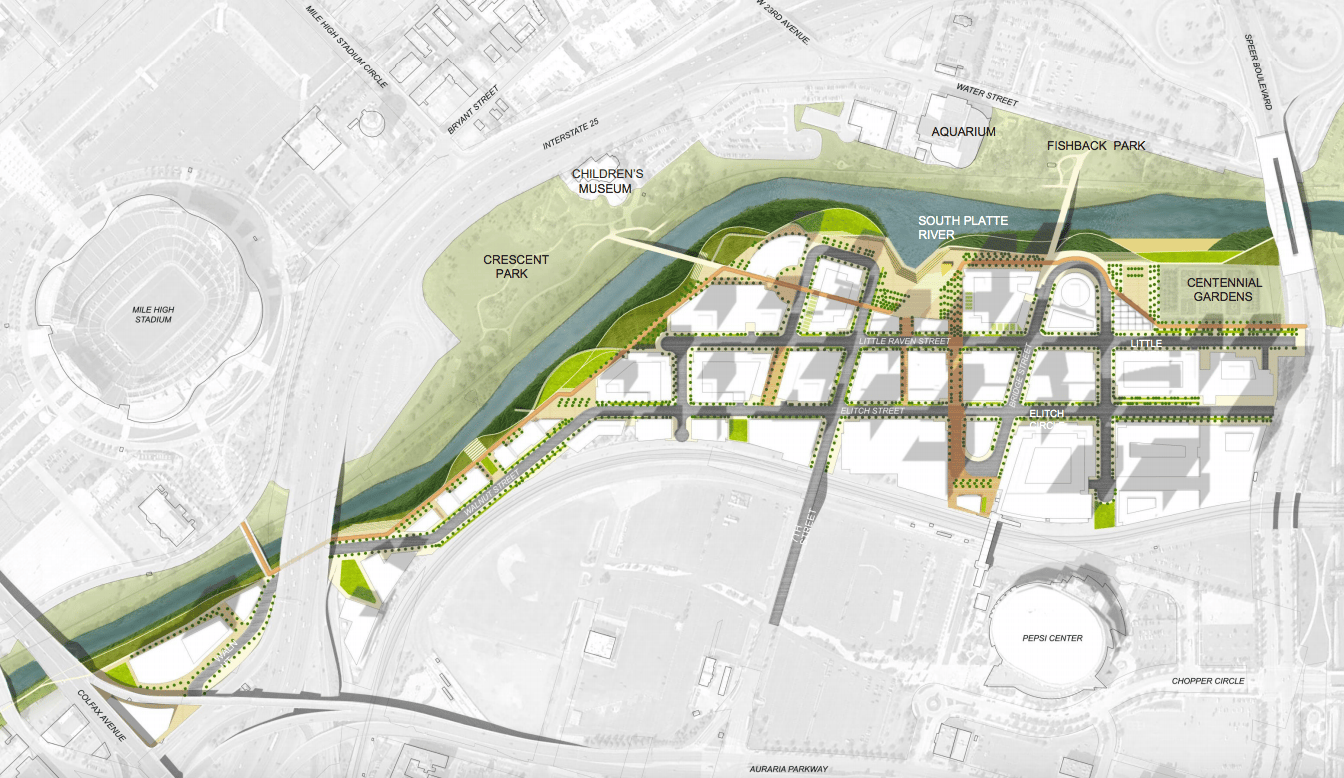Rhys Duggan's plan to build a new downtown district in Denver could take decades, but the plan got a positive early reception from city officials.
At a city meeting on Tuesday afternoon, Duggan was trying to convince the city council to allow him to form special taxing districts on the 60-acre property that includes Elitch's. That could allow him to build an estimated $665 million of infrastructure for River Mile, from parks to roads and flood controls around the South Platte River.
"I feel like this project is a poster child for truly regional improvements," he said. "We've got a mile on the river. For at least the last 150 years, this site's been off limits to the residents of Denver. It's been a rail yard, it's been a turntable, it's been a chainlink fence that is put around our Elitch's amusement park."
His plan could eventually cover the area with dozens of buildings, including skyscrapers up to 59 floors. He has said that the site could house up to 15,000 people, though it might not be finished until 2040 or later.
Councilwoman At-large Robin Kniech was skeptical of the developer's request to create taxing districts.
Duggan's company, Revesco, wants to collect an extra 60 mills of property tax off the Elitch's land, which would create a guaranteed stream of money to pay for the infrastructure grid on the site. Revesco also wants to allow surrounding property owners -- potentially including the Pepsi Center -- to voluntarily pay a similar tax.
The proposal would nearly double the amount of property tax collected on the land, which exceeds the city's normal policy, according to staff.
"I'm just nervous about why so much, versus, for example, trying out 50 (mills) and then coming back," Kniech said. "Sometimes a Cadillac is important, but sometimes you've got to live with a Chevy."
Andrew Johnston, a finance specialist with the city, said that the goal was to support "that next level of development," he said. "The developer's emphasis toward sustainable practices are very much in line with what the city's trying to achieve," he said.
The early plans call for systems to recover heat, recycle water and harvest rainfall, along with guaranteed open space and improvements to parks. (Including neighboring open space, it's about 22.2 acres.) The extra tax funding also could pay for "smart city" systems, such as wireless communications.
And the developer hopes to fund government plans for stormwater controls, which could protect the development from a 100-year storm. In fact, that effort will be crucial. The pace of improvements on the river will be a "critical path" that determines the pace of development, Duggan said.
Councilwoman Mary Beth Susman praised the plan.
"This is pretty meaningful to me," she said. "I knew the river back in the day, 50 years ago, and you just didn't go there."
Councilman Paul López said that it was hard to imagine the change. "It's kind of hard to close my eyes and not see Elitch's, not see Denver," he said.
Councilman Kevin Flynn asked whether there was a plan to replace the park. Duggan said that's the goal, but made no guarantees.
"We don't have a solid plan in place. It's such a long horizon," Duggan said. The first years of development would focus on the parking lots outside the park. "That'll get us many years down the road. I can tell you there is a strong desire of the ownership group to relocate it."
López had one request: a ferris wheel. "You may be able to achieve that kind of essential Elitch's Denver connection by keeping some of the smaller, more original elements," he said.
Duggan said it was certainly possible. The project plan includes a "major downtown gathering event space," he said. "That's a big space."












